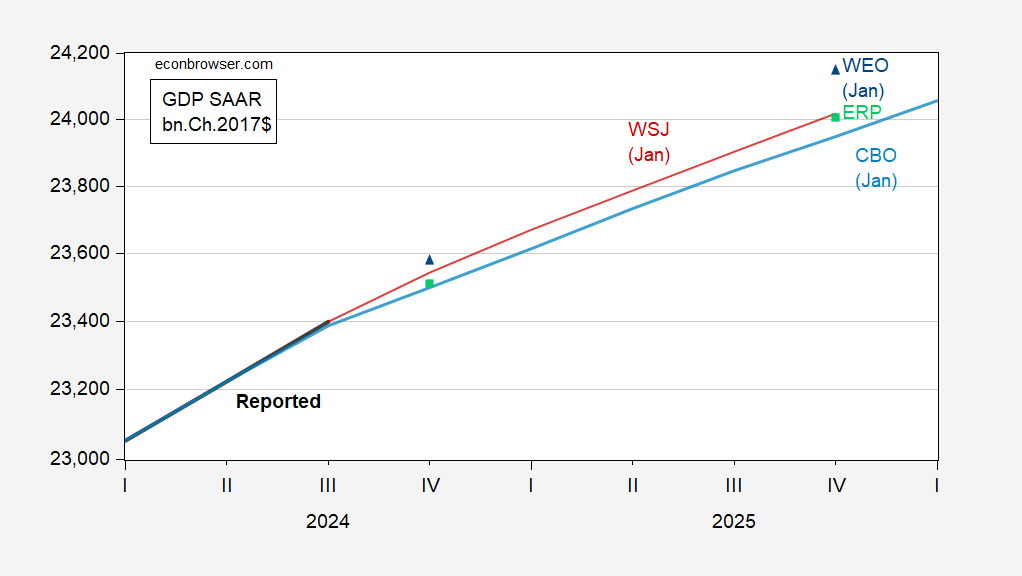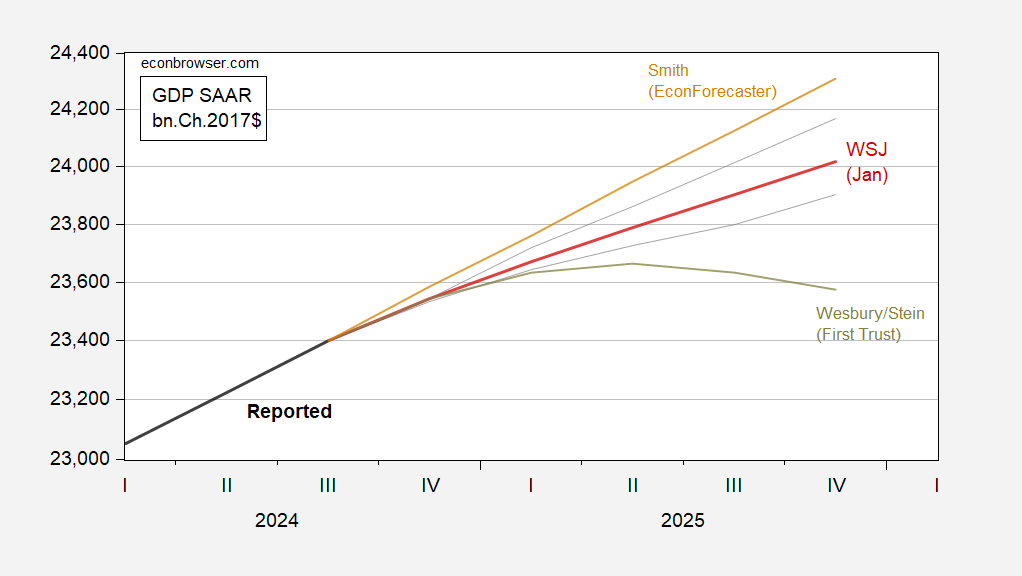A comparison:
Figure 1: GDP (bold black), WSJ January survey mean (red), CBO January projection (light blue), Biden administration (light green), IMF WEO January forecast (blue triangle), all in billion Ch.2017$ SAAR. Source: BEA, WSJ, CBO, IMF, Economic Report of the President, 2025, and author’s calculations.
Note that CBO projects under current law, Troika typically on administration policies, IMF conditions on certain assumptions, and WSJ is mean of various forecaster assumptions.
Figure 2 displays the mean forecast and a measure of divergence (trimmed 20%):
Figure 2: GDP (bold black), WSJ January survey mean (red), 20% trimmed hi, low for 2025 q4/q4 (gray lines), highest forecast (tan), lowest (gray green). Source: BEA, WSJ, and author’s calculations.
James F. Smith is (again) at the top (I want what he’s smoking!), while only one respondent is forecasting a downturn (Wesbury and Stein at First Trust). As far as I can make out, Mr. Wesbury’s and Mr. Stein’s forecast is based on a retrenchment in economic activity due to the excesses during the covid period.


Westbury is a right-wing crank who is sometimes lucky with his forecasts. His point forecast, as represented above, is for recession. His reasoning is contingent on deficit reduction (see below).
His recession forecast isn’t weighted for the probability of deficit reduction. It simply takes deficit reduction as a given, even though he seems to admit there may be no seficitreduction. Not the “If” in a recent client newsletter:
“If Trump and DOGE cut the deficit, the morphine (Wesbury’s term for deficit spending) will wear off. With significantly less stimulus a recession is highly likely. Not a deep recession, but one that causes real GDP to decline 0.5% to 1%, and corporate profits to disappoint for the first time in years.”
https://www.ftportfolios.com/Blogs/EconBlog/2025/1/6/2025-a-year-of-promise-and-paybacks
Every credible assessment of Trump’s campaign budget proposals concluded that the budget deficit would increase.
The full-year budget that will be negotiated this year doesn’t go into effect until October, so that can’t explain Wesbury’s forecast. The continuing resolution now in place funds government through mid-March, so big changes in the FY2025 budget can’thappen until near the end of Q1. So Wesbury’s logic must be that an as-yet-unseen budget for the 6 1/2 months starting on March 16 will cause a slowdown in Q2 and a recession beginning in Q3.
I’m willing to say the Wesbury’s forecast is wrong, even if we go into recession in 2025, because he’s got the cause of recession wrong.